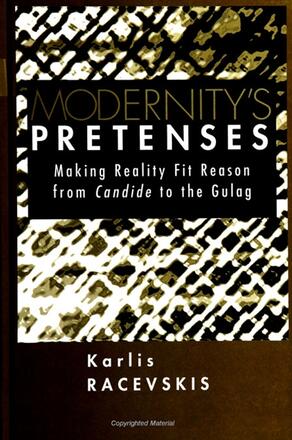
Modernity's Pretenses
Making Reality Fit Reason from Candide to the Gulag
Alternative formats available from:
Undermines modernity's authority through a cultural and historical examination of texts and thinkers from the Enlightenment to post-Stalinist Europe.
Description
Modernity's Pretenses undermines modernity's authority through a cultural and historical examination of texts and thinkers from the Enlightenment to post-Stalinist Europe. Racevskis argues that modernity's elaborate designs for rationalizing the world have mainly functioned as covers and alibis (i. e., pretenses). Modernity's promise to liberate humanity from superstition, injustice, and want has been a tactic for making exploitation seem noble and for lending barbarism an aura of progress. Racevskis examines the mechanisms and history of the pretending that mark the modern world and surveys the critical approaches that have proven most effective in dispelling the credibility of pretenses.
Karlis Racevskis is Professor of French at The Ohio State University. He is also the author of Postmodernism and the Search for Enlightenment.
Reviews
"This book has been the occasion for one of the most enlightening intellectual experiences I have had in years. I am quite familiar with the subject matter of the first four chapters, but the author synthesizes and illuminates this material in ways I had never imagined and led me to see my own work in new light. The last three chapters introduced me to fascinating bodies of literature that I had never before been exposed to and left me thirsty for more. I read the entire book twice and some sections a third time. I read it the first time in one day. " — Michael Mahon, Boston University
"The book will serve as a very useful introduction to certain poststructural and postmodern thinkers for college students in literature and cultural studies. " — Diane Fourny, University of Kansas